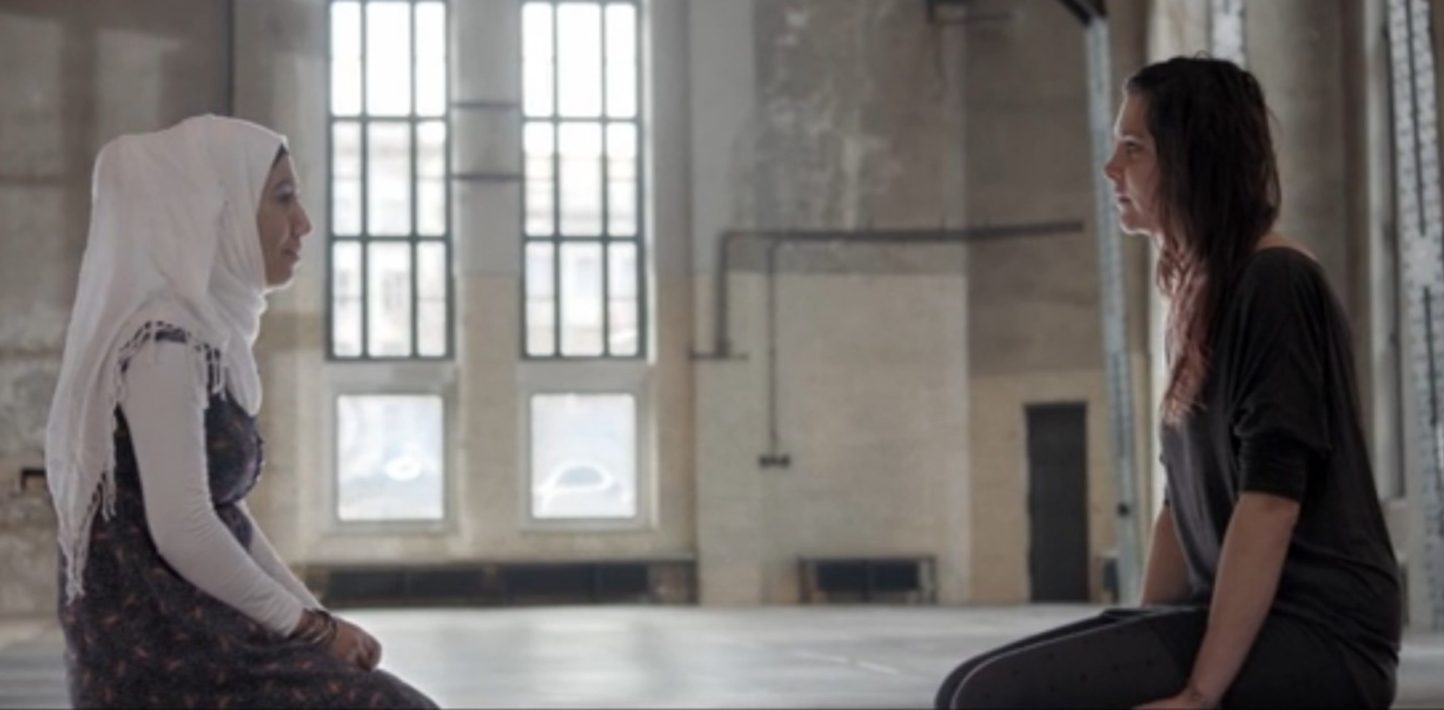Follow the I Welcome live event on Facebook.
In the face of divisive rhetoric and anti-refugee hostility, refugees and local people on four different continents will come together for a unique social experiment, affirming our shared humanity, to be streamed live on Amnesty International’s global Facebook page today.
Based on a social theory that four minutes of eye contact can create a close bond between two strangers, refugees from countries including Ethiopia, Honduras and Myanmar will stare into the eyes of people from Australia, Kenya, the United Kingdom and Mexico in a live social experiment broadcast live from four cities – Sydney, Nairobi, London and Mexico City – at 19.00 local time in each time zone.
The refugee crisis is a global issue, but many people feel disconnected from the hardships faced by people from other places. Yet, if we looked a little closer, we might find that the differences between us are not so great after all.
Osama Saeed Bhutta, Amnesty International’s Communications Director.
“The refugee crisis is a global issue, but many people feel disconnected from the hardships faced by people from other places. Yet, if we looked a little closer, we might find that the differences between us are not so great after all. We want to show how easy it is for people from different places to connect,” said Osama Saeed Bhutta, Amnesty International’s Communications Director.
“We live at a time when xenophobia and hate crimes are on the rise, but such poisonous views are not universally held. When people come face-to-face with refugees, you see they are often ready to go to great lengths to help their fellow human beings. That’s what this this live experiment is all about; enabling people to see things from another perspective and connect with people who need solidarity.”
The live experiment follows the success of Amnesty International Poland and DDB&Tribal Warsaw’s Look Beyond Borders, a video in which refugees from Syria and Somalia were sat opposite people from Poland, Italy, Germany and Belgium for four minutes of uninterrupted eye contact in a warehouse in Berlin.
The concept for the video, viewed more than 200 million times since its launch in May, comes from a 1997 study by American psychologist Arthur Aron, who found that four minutes of sustained eye contact can create feelings of intimacy between two people.
This time the experiment, run with DDB&Tribal Warsaw and Papaya Films in cooperation with Film Graphics, Quite Bright Films and Tantor Films, will take place in a live setting, and the locals will not know that they are about to meet refugees – meaning that the online audience will see their emotional reactions to this news. The live stream will allow the online audience to post real-time questions and comments on Facebook for our celebrity hosts.
Amnesty International has asked refugees from various countries to meet with locals from four countries:
- In Australia, at 08.00 AM GMT / 19.00 Sydney time, the event will be hosted by Natalie Tran, whose parents and sister arrived to Australia by boat from Vietnam, and include refugees from Iran and Afghanistan. Amnesty International is calling on the Australian government to end the deliberate abuse of hundreds of people seeking asylum who have been warehoused on the nearby islands on Manus and Nauru.
- In Kenya, at 16.00 GMT / 19.00 Kenya time, in an event hosted by comedian Daniel Ndambuki, with refugees from Burundi, the Democratic Republic of Congo and Ethiopia. Amnesty International is calling on the Kenyan government to shelve plans to close the Dadaab refugee camp – the world’s biggest. Kenya has already forced tens of thousands of refugees to return to Somalia despite the on-going conflict in the country.
- In Mexico, 01.00 GMT (19 November) / 19.00 Mexico time, actor Tenoch Huerta will host an encounter between Mexicans and refugees from Honduras, Syria, and Venezuela. While hundreds of thousands of people flee violence in Central American countries, the number of Guatemalans, Hondurans and Salvadorans deported from Mexico increased by nearly 180% between 2010 and 2015.
- In the United Kingdom at 19.00 GMT, in an event hosted by Harriet Rose. The UK has taken in fewer than 8,000 Syrians since 2011. By contrast, Jordan – with a population almost 10 times smaller than the UK and just 1.2% of its GDP – hosts more than 655,000 refugees from Syria.
There is only one way to solve the refugee crisis: more governments must say ‘I welcome’ refugees.
Osama Saeed Bhutta
“There is only one way to solve the refugee crisis: more governments must say ‘I welcome’ refugees. We know there is a silent majority who would help refugees if given the chance – 85% of people surveyed in the four participating countries for our Refugees Welcome Index earlier this year said they would let refugees live in their country,” said Osama Saeed Bhutta.
“This coming together of people from around the world, face to face, will show that we can overcome our fear of the unknown to welcome others into our communities.”
Amnesty International’s I Welcome campaign is calling on governments to share responsibility for welcoming in 10% of the world’s refugees every year.
The I Welcome live experiment can be followed live here: www.facebook.com/AmnestyGlobal


